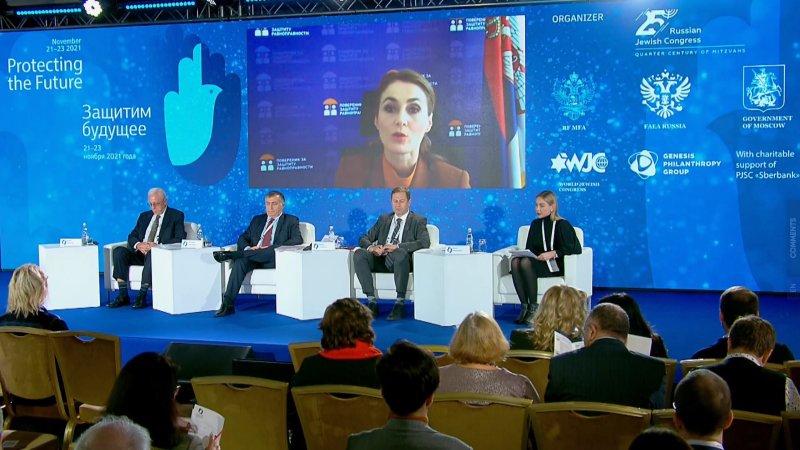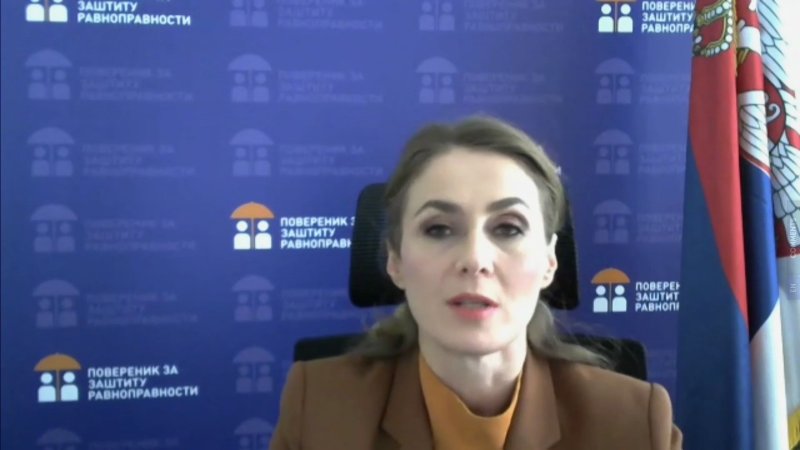Commissioner for the Protection of Equality Brankica Janković is participating in the Third Moscow International Conference on Combating Xenophobia, Anti-Semitism and Racism “Let’s Protect the Future”, organized by the Russian-Jewish Congress with the support of the Ministry of Foreign Affairs of the Russian Federation. At the invitation of the organizers, the Commissioner participated “online” in the panel “Fighting Xenophobia, Anti-Semitism and Racism: Global Challenges and New Trends”, where she agreed with the assessment that there are great dangers of growing anti-Semitism and racism, but also pointed out positive experiences Serbia, since our country is one of the few that does not share the global growth trend of anti-Semitism. One of the main reasons is the great suffering of the Serbian people in both world wars, which is why Serbia rightfully nurtures the anti-fascist tradition, said Janković.
It cannot be said that Serbia is an isolated island, because although it does not record the growth of anti-Semitism, there have been isolated incidents in recent years, which is why the Commissioner for the Protection of Equality of the Republic of Serbia issued seven public warnings. It was mostly about graffiti and drawings of Nazi symbols in public places, but the comparison of a Crisis Staff doctor with the Nazi doctor Mengele stands out as especially inadmissible. Condemnation of the institution is very important, because that way, as a state and society, we show zero tolerance for such events – Brankica Janković pointed out. She added that the migrant crisis did not contribute to the growth of xenophobic mood, despite the attempts of some smaller extremist associations to spread fear through networks or by self-organizing. This crisis is actually an example of how such harmful phenomena can be prevented by the responsible rhetoric of the highest state officials, the actions of the competent authorities and the condemnation of spreading false news, concluded the Commissioner.
Hate speech on social networks has been recognized as a global problem which all countries are facing, and which has turned the “online” space into a “digital battlefield”. Key ways of combating it are prevention and education. Special attention should be paid to the way educational content is presented to young people, who are less and less using traditional media, concluded the conference participants, including Deputy Foreign Minister Sergey Vershinin, OSCE High Commissioner on National Minorities Kairat Abdrakhmanov, Vice President of the European Commission Vera Jourova, Chair of the European Parliament’s Committee on Equality and Non-Discrimination Petra Bayr and others.



